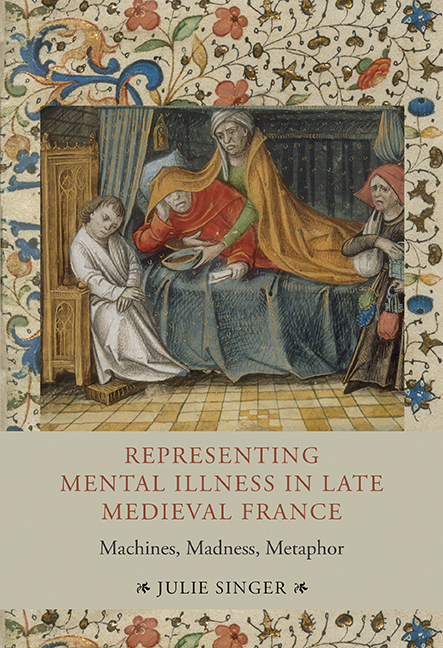Book contents
- Frontmatter
- Dedication
- Contents
- List of Illustrations
- Acknowledgements
- List of Abbreviations
- Introduction: Oxidation Before Oxygen
- 1 Of Metal and Men
- 2 Une enroullure de sapience: Instituting Princely Virtues at the Court of Charles V
- 3 Metaphors of the Body Politic
- 4 Le fer en la playe
- 5 Alain Chartier's rooil de oubliance
- Epilogue: Men Without Machines
- Bibliography
- Index
- Book part
1 - Of Metal and Men
Published online by Cambridge University Press: 15 October 2019
- Frontmatter
- Dedication
- Contents
- List of Illustrations
- Acknowledgements
- List of Abbreviations
- Introduction: Oxidation Before Oxygen
- 1 Of Metal and Men
- 2 Une enroullure de sapience: Instituting Princely Virtues at the Court of Charles V
- 3 Metaphors of the Body Politic
- 4 Le fer en la playe
- 5 Alain Chartier's rooil de oubliance
- Epilogue: Men Without Machines
- Bibliography
- Index
- Book part
Summary
I'm getting a little rusty; he's not too sharp. Certain metallic metaphors for cognitive lapses or impediments are commonplace today. Similar language serves in late medieval French texts as a figure for disrupted cognitive function, and yet, there is much about these figures of speech that is not as similar to modern idiom as it initially seems. Late medieval French writers use the metaphor of rust in a surprising variety of contexts: rusting is treated in Middle French expressions and idioms as an evocative, usually destructive, but sometimes useful or even protective process.
The figure of rust appears in a wide range of medieval French texts, from romances and moralizing allegories to religious plays, political treatises, bawdy tales, and lyric poetry. In these, rust can refer metonymically to a color (as it often does today) and rusted arms to an unskilled, unpracticed or cowardly warrior. While the metonymic valences of rust are often not distant from modern usage, medieval rust metaphors are both widespread enough and complex enough to bear closer examination. Many Middle French metaphoric uses of rust are closely tied to the notion that skills or qualities may be “dulled” through disuse. Military activity, political engagement, even female genitalia can be characterized as “rusty” when they slow to an unacceptably sluggish pace or fall into regrettable disuse. The more creative rust metaphors that will constitute the primary focus of this study use rust as a tool for understanding mental processes. Rust often indicates a state of intellectual idleness or incapacity, as when Jean Daudin writes that “l'engien blechié par longue roullure s'endort” (the intellect injured by long rusting falls asleep), or when Martin Le Franc justifies his own literary undertaking by pointing out that “exerciter et limer l'entendement en euvre gracieux et honneste est chose plus loable que le laissier esroullier par oyseuse” (exercising and sharpening the intellect with gracious and honest work is more admirable than letting it rust through idleness), or when Jean Juvénal des Ursins admonishes that “Il n'est ni sage ne si vaillant que par oysiveté et non soy excercer ne enroulle ou arudisse son intendement ou vaillance” (He is neither wise nor valiant who, through idleness and failure to exercise, rusts or dulls his intellect or his valiance).
- Type
- Chapter
- Information
- Representing Mental Illness in Late Medieval FranceMachines, Madness, Metaphor, pp. 39 - 78Publisher: Boydell & BrewerPrint publication year: 2018



